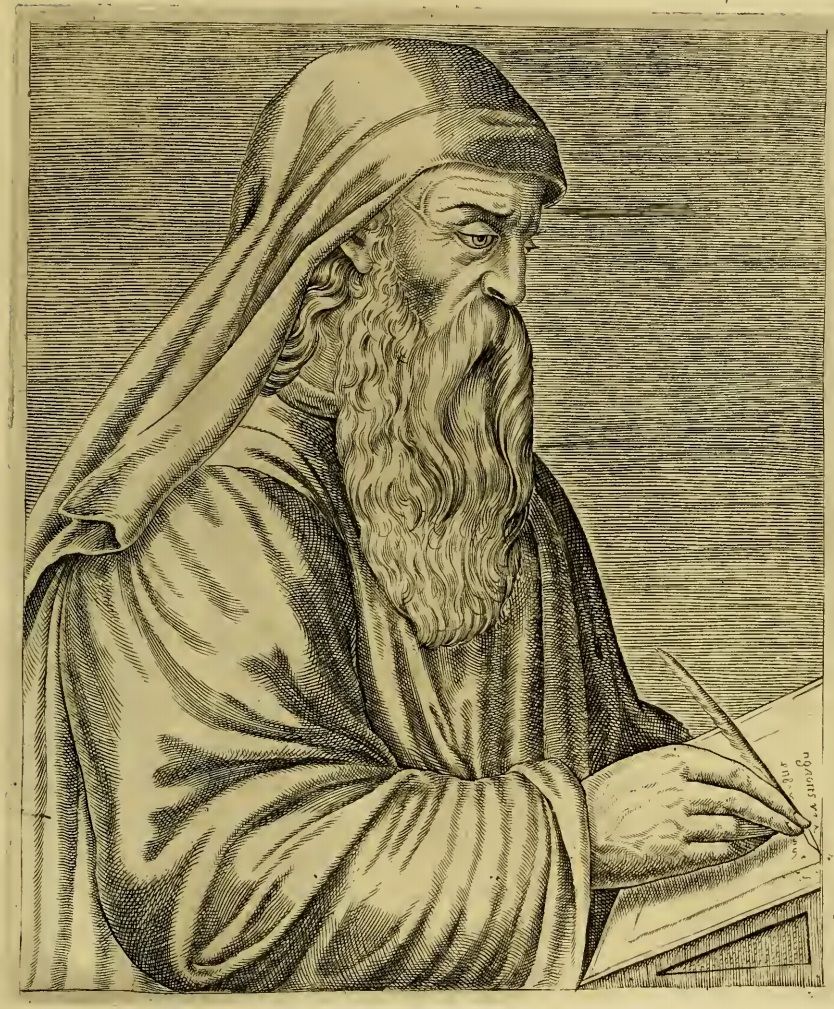
Chess ban in the Eastern Roman Empire or a Murray's misreading? Ioannis Zonaras case...
This blog possibly isn't on chess history. But that's the point... I think that it shouldn't be part of, or at least not in the exact way it is presented. Reading and gathering material for a previous blog, I've tracked in Murray's history one of the really few passages around chess, coming from the Eastern Roman Empire. This excerpt is around the interpretation of the dice prohibition by the Church, trying to include chess too. Something that as we've seen in my previous blog did occur in Western Europe.
But let's see firstly the relative excerpt by Murray [pp. 166-167] and then we will try to fill in all the possible gaps, correct the inaccuracies but mostly check the truth:
"The Emperor Alexis's fondness for chess may have been the cause of raising a powerful and bitter hostility to the game. It is at least singular to find that the first ecclesiastical denunciation of chess on the part of the Eastern Church was voiced by John Zonares, who, after filling the post of commander of the Emperor's bodyguard, retired as a monk to the Monastery of Mt. Athos and died there in 1118. It was during his retirement that he wrote his commentary on the canons of the Eastern Church.
That the early mediaeval Church viewed the use of dice with strong disfavour is evident from the attempts that were made to suppress it by legislation. The early list of rules known as the Apostolic Canons, requires both clergy and laity to give up the use of dice.
42. A Bishop, Priest, or Deacon addicted to dice (Gk. kuboi, Lat. alea) shall either give them up, or be deposed.
43. A Sub-deacon, Reader, or Singer doing the same shall either give them up, or be deposed. So also the laity.
These rules were adopted by the Trullan Synod (Third Council of Constantinople) in 680, and have since then formed part of the Nomocanon of the Eastern Church. It was natural that, in the course of time, the attempt should be made to explain the prohibition of kuboi or alea by defining exactly the games which were to be included under these terms. This attempt was not confined to the Eastern Church : the later Latin use of alea as the name of a game helped to confuse the lawyers of the Western Church, and we shall find Cardinal Damiani arguing in a letter of 1061 that the prohibition of alea extended to chess. The Western Church took this view for a considerable time.
Zonares makes the following note on the 42nd rule of the Apostolic Canons:
Because there are some of the Bishops and clergy who depart from virtue and play chess (zatrikion) or dice or drink to excess, the Rule commands that such shall cease to do so or be excluded; and if a Bishop or elder or deacon or subdeacon or reader or singer do not cease so to do, he shall be cast out; and if laymen be given to chess-playing and drunkenness they shall be excluded..."
And this was Murray...
_
Regarding the dice prohibition briefly
We have already seen in my previous blog that the ban of chess in the middle ages by the church came as an interpretation of the dice prohibition. The latter firstly tracked in the Canons of the Apostles [a 4th century Syrian Christian text]. These Canons became corpus in the Eastern Orthodox Church through the Quinisext Council in 692 AD, that Catholic church didn't accept it. Zonaras' notes on these canons, that Murray wrote that included chess, came in the early 12th century, and survived as a main interpretation of these rules for hundreds of years within Eastern church.
Murray's inaccuracy, but without changing the main meaning, around exact name and date of this church council is easily understood. These rules were adopted in the Eastern Roman Empire via the Quinisext Council in 692 AD, that it was called the Trullan Synod. The 6th Council did take place in 680 in Constantinople, where Western church took actually part, but didn't produce any rules. And this gap came to fill the next Quinisext Council of 692, writing the rules of the two previous councils [5th & 6th], of which actually came the name Quinisext.
Footnoting, Western church didn't take part or approve the Quinisext Council of 692. However, in the western Christianity, most of these rules had been already incorporated since their translation in Latin by Dionysius Exiguus, c. 500 AD, including the dice rule [Collectiones canonum Dionysianae]. I use the verb incorporate but in the beginnings there wasn't an official approval. The collection of Dionysius included the rules of many councils, that weren't accepted all in the first place by the Popes, regarding the Canons of the Apostles too. However seems that there was a progressive acceptance by the early years, and possibly fully accepted by the 8th century [on these detailed reference in The Collectio Dionysiana by Abigail Firey, 2008 & in wiki].
These differences between Western & Eastern church [or Western & Eastern Roman empire?] troubled me a little. As on the level of religion the big East–West Schism of 1054 is yet to come. And on a state level, Rome at the time became part of the Eastern Roman empire during the years 553 – 754 AD, until the Papal states were founded. Anyway...
And as we are on the subjest of my previous relevant blog ~ a typo. In ch. 3.1 erroneously I'm writing the Concilium Rotomagensis [Rouen] of 1414. It's of 1214...![]()
_
Ioannis Zonaras
Little are known about Ioannis Zonaras [c. 1074 - 1158 AD], and most of them are derived from his own work. One of the principle figures of the Byzantine literature of the time, he seems to be for some time the Grand Droungarios of the Watch, title for a higher judicial officer. Around 1118 AD, with the rise of John II Komnenos on the Byzantine throne, he seems to abandon secular life to become a monk, possibly in mount Athos. It's obscure if this decision was made by his own will. During the next years, he devoted himself to writing, with History Compendium the most famous and significant of his works [detailed reference on Zonaras in The hagiographical works of John Zonaras by Eleni Kaltsogianni, 2008 & in Les vrais pourtraits by André Thevet, vol. 1, 1584, p. 26, from which the following sketch].

_
The notes on the Canons of the Apostles
And we come into the crucial part. Zonaras wrote some interpretive notes on the rules of the church Councils along with the Canons of the Apostles. Either solely or with the ones by Theodore Balsamon & Alexios Aristenos, of approximately same dating, can be found in many manuscripts and were the main interpretation of these rules for years. I've searched and tracked some mss, the oldest since 13th century, and none of them mentions chess or zatrikion in the notes, while all are using the exact same words.
Specifically these mss and old books...:
- MS Grec 1319, f. 43, 13th cent [there's a note for year 1527 in the end of the ms, but I don't know what exactly means. Maybe as this ms seems to come from the reign of Catherine de' Medici, according to Histoire du droit byzantin by J. A. B. Mortreuil, vol3, 1846, p. 428]. In Greek
- MS Biblioteca Medicea Laurenziana Plut.5.40, f. 20r, 14th cent. In Greek
- MS Grec 1335, f. 20, 14th cent. In Greek
- MS Coislin 210, f. 26, 14th cent. In Greek
- MS Grec 1322, f. 12, 16th cent. In Greek
- MS Grec 1323, f. 22, copied in 1598 AD. In Greek
- Ioannis Zonarae Monachi in Canones SS. Apostolorum & Sacrorum Conciliorum, Typis Regiis, c. 1618 AD [exact year obscure], p. 23 [of pdf 01] in Latin-Greek, found in http://digital.lib.auth.gr/record/126794
- Synodikon by William Beveridge, 1672, p. 29. In Latin-Greek along with the notes of Theodore Balsamon & Alexios Aristenos
- Σύνταγμα των Θείων και Ιερών Κανόνων by Ράλλης & Ποτλής, 1852, pp. 58-59 [in pdf 01], found in http://digital.lib.auth.gr/record/126152
However, I must say that I've tried but couldn't track any of the mentioned mss [here] that lie in the monasteries of mount Athos... but possibly they shouldn't have differences. It's really noticeable that none of the above mentioned mss has any difference in the text.
_
|
Κανών ΜΒ' Επίσκοπος, ή πρεσβύτερος, ή διάκονος, κύβοις σχολάζων, και μέθαις, ή παυσάσθω, ή καθαιρείσθω. |
Rule 42. If a bishop, or presbyter, or deacon who plays dice or drinks, either let him leave off those practices, or let him be defrocked. |
|
Κανών ΜΓ' Υποδιάκονος, ή αναγνώστης, ή ψάλτης, τα όμοια ποιών, ή παυσάσθω, ή αφοριζέσθω. Ωσαύτως και λαϊκός. |
Rule 43. If a subdeacon, a reader, or a singer does the like, either let him leave off, or let him be excommunicated; and so for one of the laity. |
|
ΖΩΝΑΡ. Τους επισκόπους, και τους του κλήρου πάντας, παράκλησιν άπασι προς αρετήν είναι χρη, και αρχέτυπον, και παροξυσμόν προς αγαθοεργίαν. Έπει δε και τούτων τινάς εικός εστί εκτρέπεσθαι του καλού, και ή κυβεύειν, ή μεθύσκεσθαι, διατάττεται ο κανών, ή παύεσθαι τους τοιούτους, ή τους μεν επισκόπους, και πρεσβυτέρους, και διακόνους καθαιρείσθαι, τους δε γε υποδιακόνους, και αναγνώστας, και ψάλτας, ει μη παύοιντο, αφορίζεσθαι. Αλλά μην και τους λαϊκούς κύβοις και μέθαις σχολάζοντας, μή πίνειν γαρ οίνον εις μέθην, φησίν η γραφή, και πάλιν, μη μεθύσκεσθε οίνω, εν ω έστιν ασωτία. Αλλ' ουδέ καπηλικού προΐστασθαι εργαστηρίου κληρικός συγχωρείται, κατά τον έννατον κανόνα της εν τω Τρούλλω συνόδου. |
Zonaras [a little free translation] Bishops, and all men of the church, should call everyone to the virtue, and should be example and provocation for good deeds. But as even some of them it's expected to deviate from virtue, and either playing dice, or getting drunk, the rule orders that, either those leave off these practices, or the bishops, the presbyters & the deacons would be defrocked, and the sub-deacons, the readers & the singers, if won't leave off, would be excommunicated. But even the laity who plays dice and gets drunk, the writing says, should not drink wine or get drunk with wine, as there's debauchery in. And no cleric should be in charge of a tavern, according to the 9th rule of the Trullan Synod. |
_
Some documents
For ones that want to check & read them, here're some excerpts of the mss I've found...




_
In the end
It's obvious that somewhere there's a discontinuity. Murray reads that both clergy and laity should give up chess. But in all the MSS I've found, since 13th century, both in greek and latin, there's no mention of chess or zatrikion. While it's noticeable that also in the other notes by Balsamon or Aristenos, chess isn't mentioned. Nothing relevant can be found either, in the notes of the 50th rule of the Quinisext Council of 692 AD, where dice are again prohibited. The fact is that unfortunately Murray doesn't give his source or the ms that he used for Zonaras notes. It would be nice, and for a history maniac interesting, to see when and where this original text or translation, the one that Murray had read, appeared.
Maybe it has something to do with the Russian translations of the Zonaras notes, that Murray mentions on p. 380. The Kórmchiye Books. With a huge huge doubt of course...
And now that I possibly restored the chess reputation of Zonaras after so many years, I may go to sleep ![]() !
!
....

